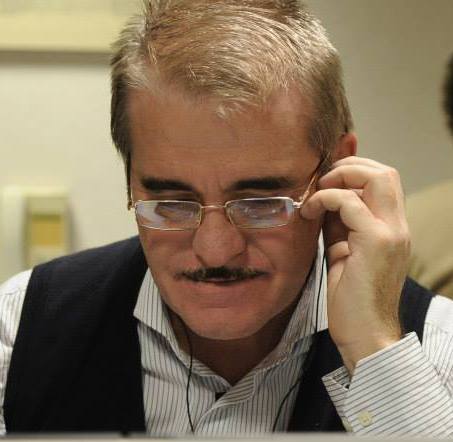Photo: kathimerini.gr
Anastasia Balezdrova
After last night's "no" to extending the bailout programme after its expiry on 28 February stated by the government of Alexis Tsipras, Greece is perhaps entering the most critical week for its future. Shortly before the start of negotiations with the lenders, Athens declared that it would not give up its request for a bridging programme to ensure its funding for several months until the new cabinet offered its action plan.
Meanwhile, Greece's European partners have warned that the adoption of such a programme is not contemplated and that if Athens wants to continue to rely on their support it has to request an extension of the current bailout.
The current stalemate has provoked frequent comments that the probability of Greece leaving the euro zone is becoming greater each passing day. The concerns are reinforced by statements by economist and SYRIZA member Kostas Lapavitsas that "if the lenders refuse to accept our proposal or attempt to blackmail us, all options are open, for conducting both a referendum and elections in which the Greek people can express their will regarding what the next actions of the government should be."
 How Brussels perceives the developments in Athens, whether Greece has allies in Europe and what could be the alleged end of the attempts of the Greek cabinet to push through its position in breach of European rules were the issues that GRReporter discussed with journalist and long-time correspondent for Bulgarian media in Brussels Veselin Zhelev.
How Brussels perceives the developments in Athens, whether Greece has allies in Europe and what could be the alleged end of the attempts of the Greek cabinet to push through its position in breach of European rules were the issues that GRReporter discussed with journalist and long-time correspondent for Bulgarian media in Brussels Veselin Zhelev.
Last week we witnessed a European tour of Greek Prime Minister Alexis Tsipras and Minister of Finance Yanis Varoufakis. What are the perceptions of European leaders and media of the new Greek cabinet?
I cannot say what the perceptions of European leaders are but I can say what the public reactions are. In short, they range from reticence to an open disagreement with the new Greek cabinet. Tsipras visited Rome, Paris and Brussels, and his Minister of Finance was in the same places, and in Frankfurt and Berlin, where he met with President of the European Central Bank Mario Draghi and his German counterpart Wolfgang Schaeuble.
I can say that Tsipras was received with a formal protocol of friendliness and solidarity in the two most influential capitals with leftist governments, Rome and Paris, but also with much restraint and a clear warning that neither Italy, nor France agree to forgive the Greek debt.
I noticed a symbolic gesture by Matteo Renzi who gave Tsipras a tie. A symbol of Tsipras as an anti-system player that is directed to his constituents is that he does not wear a tie, unlike the rest of the traditional elite. Personally, I "read" this present in the following way: "if you are in the club, you have to play by its rules." Greeks owe each Italian citizen 600 euro and 60 million Italians want their money. That is, there is no left-winged solidarity. Moreover, if Greece becomes insolvent or if the markets interpret a possible restructuring of its debt as a "credit event", i.e. as a recognised default, Italy will be the next country that will be exposed to the "contagion" the most. Indeed, now the banking union is blocking the main transmission of the contagion but it has just been created and has not yet been tested in a real situation.
In Bulgaria there is some enthusiasm due to the victory of SYRIZA which is difficult to explain. Some even wrote that it was the beginning of a new "European Spring" and Greece would change Europe. It remains to be seen. It may change it. But what I see as an objective fact so far is that Europe has changed SYRIZA, the first clear sign of the change being that Tsipras and Varoufakis have openly renounced their election promise to negotiate the debt forgiveness. The euro zone has stated at all levels that it will not happen.
I think the pressure on them will continue and they will have two options, either to accept the conditions of the lenders or for Greece to leave the euro zone, which they themselves declare that they do not want to happen. Therefore, they will have to accept a compromise. Of course, there will be very difficult negotiations. No one in Europe wants to destabilise Greece but no one will make ungrounded concessions to it either. Moreover, no one will create a political precedent in terms of breaking the rules of the euro zone.
Therefore, they will have to accept a compromise. The question is how well they will negotiate, what compromise they will achieve and what political cost SYRIZA will pay.
Alexis Tsipras said several times that SYRIZA is not trying to divide Europe without anyone asking him about that or accusing him of that. Do you think there is such a danger?
It depends on what we mean by "Europe". If we perceive it as "Europe of citizens" and "Europe of nations", objectively it is divided into rich and poor, North and South, East and West, and into lenders and debtors. This division is objective. It exists regardless of the fact that some deny it and it is a consequence of the crisis.
One of its political manifestations is the radicalisation that is taking place in some countries. This year we are yet to see phenomena like SYRIZA, in which anti-system parties come to power or occupy key posts at least, as balancers in parliaments, which determine the formation of the government.